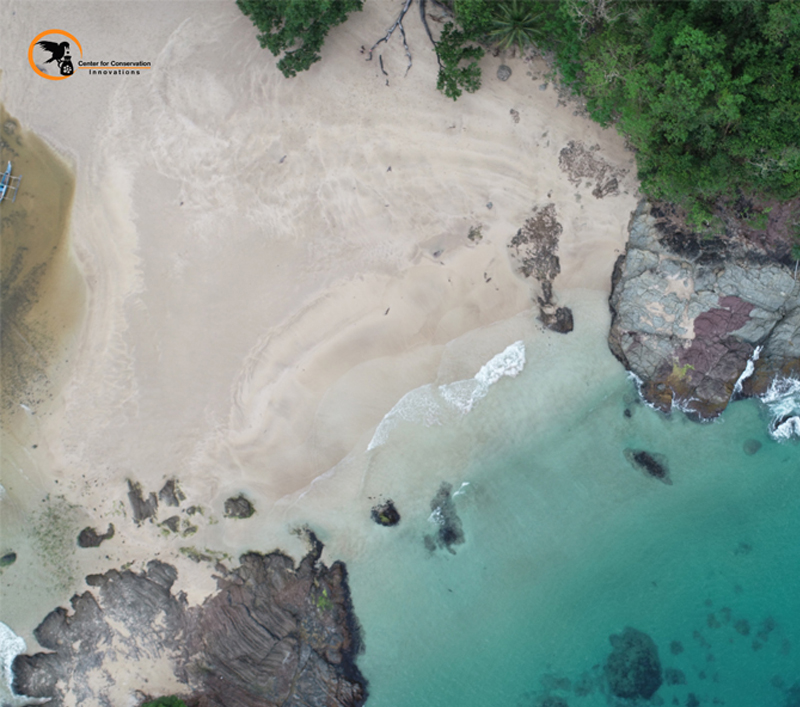CCIPH is a consortium member of the Philippine Sustainable Interventions for Biodiversity, Oceans, and Landscapes (SIBOL) Activity, a five-year natural resources management and biodiversity conservation project funded by the United States Agency for International Development. It is among the biggest and most important initiatives in the country that could profoundly impact the environment in generations to come.
Research Triangle Institute, which leads the implementation of SIBOL, has assembled a consortium of esteemed natural resource management and biodiversity conservation experts. Joining CCIPH are the Forest Foundation Philippines; Resources, Environment, and Economics Center for Studies Inc; and the Zoological Society of London.
Officially launched in 2020, SIBOL aims to work with the Philippine government to achieve its goals of improving natural resource governance, stimulating public and private sector investments, and reducing environmental crime, leading to greater ecosystem stability and inclusive green growth. It has set up four sites in the following key protected areas in the Philippines:
- Masinloc-Oyon Bay Protected Landscape and Seascape, a coastal area that supports thousands of fishers and coastal communities threatened by mining, overfishing, and population growth
- Puerto Princesa Subterranean River National Park and Cleopatra’s Needle Forest Reserve, which are forest areas of the ecologically important Palawan province and significant habitats for biodiversity
- Mantalingahan Protected Landscape, a forest area that is home to abundant biodiversity and more than 12,000 indigenous people threatened by logging and mining pressures
- Siargao Island Protected Landscape and Seascape, a marine protected area surrounded by the country’s largest contiguous mangrove area and is threatened by over-fishing and the exploitation of other natural resources
National policies, programs, and tools are being adapted and rolled out at these sites, while local interventions and learnings inform national policies. Working at both the national and site levels, SIBOL collaborates with the Department of Environment and Natural Resources, the Department of Agriculture’s Bureau of Fisheries and Aquatic Resources, and the Palawan Council for Sustainable Development. All interventions under SIBOL Activity follow the Planetary Health Approach that uses cutting-edge science, coordinated and inclusive governance strategies, and powerful economic incentives to protect both biodiversity and the communities in and around the targeted terrestrial and marine landscapes.
SIBOL aims to achieve impactful results through three strategic approaches:
Strengthening science-driven decision-making
SIBOL strengthens the governance of key natural resources by clarifying authority and coordination—both nationally and at site level—to understand the political climate and current political practice. SIBOL also strengthens land and coastal resource management by supporting the effective participation of communities and other underrepresented groups in governance structures, as well as by developing cutting-edge decision-making tools to improve biodiversity and socio-economic monitoring and analysis.
Improving economic incentives
SIBOL promotes economic incentives grounded on economic valuation results and sustainable supply chain studies. Better informed decision-making can then lead to increased engagement of the private sector and local communities in sustainable activities that contribute to overall green growth and natural wealth accumulation.
Strengthening enforcement
Biodiversity in the Philippines is threatened by unsustainable practices, irresponsible tourism, and environmental crime. SIBOL seeks to address threats to biodiversity from unsustainable practices and irresponsible tourism as well as address environmental crimes. This involves engaging with the enforcement community as well as relevant stakeholders who can provide valuable insight for improved law enforcement. SIBOL also seeks to increase and improve the use of responsive technologies and evidence-based approaches to prevent and reduce environmental crimes.
CCIPH brings its wealth of expertise and experiences on addressing biodiversity risks, climate change mitigation, climate finance, and forest carbon financing. Specifically, its capabilities in identifying conservation targets and measures, enhancement of protected area management plans, identification of High Conservation Value Areas, community and livelihood enterprise development, species distribution modeling, and the provision of technical support on the roll-out of a landscape and wildlife threats monitoring and reporting will help ensure that SIBOL’s strategic objectives will be attained.

